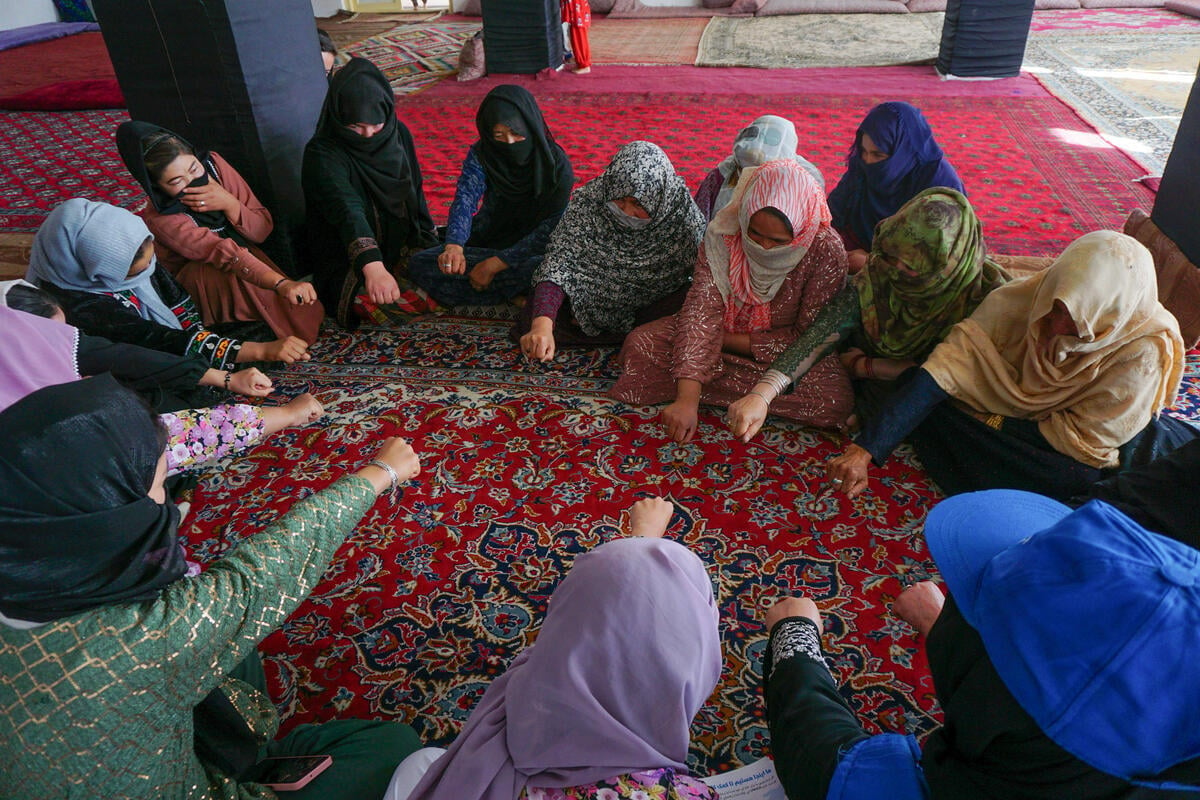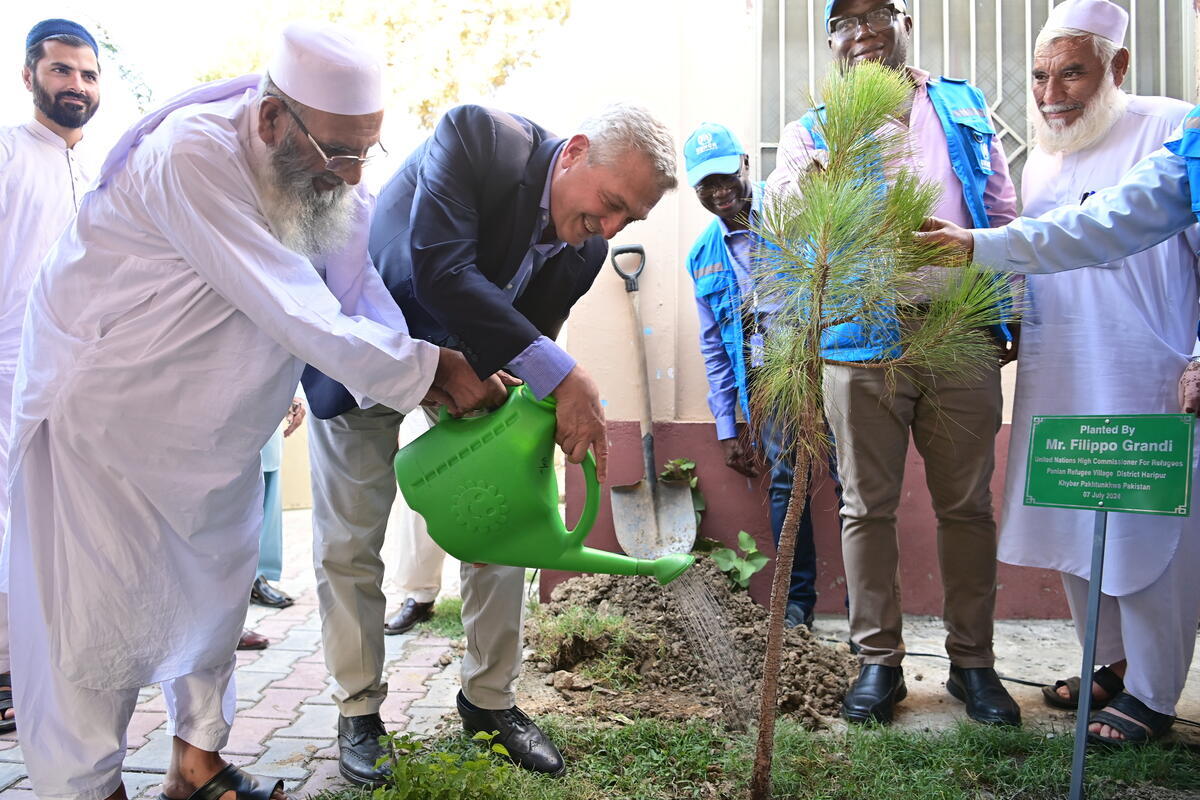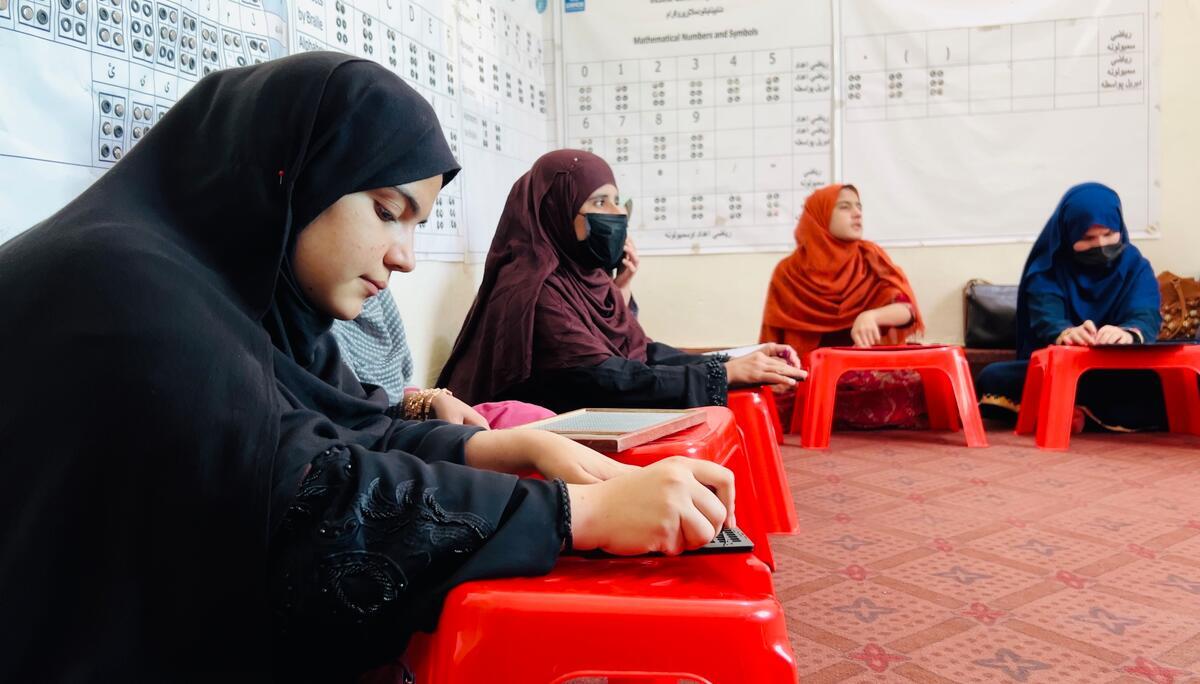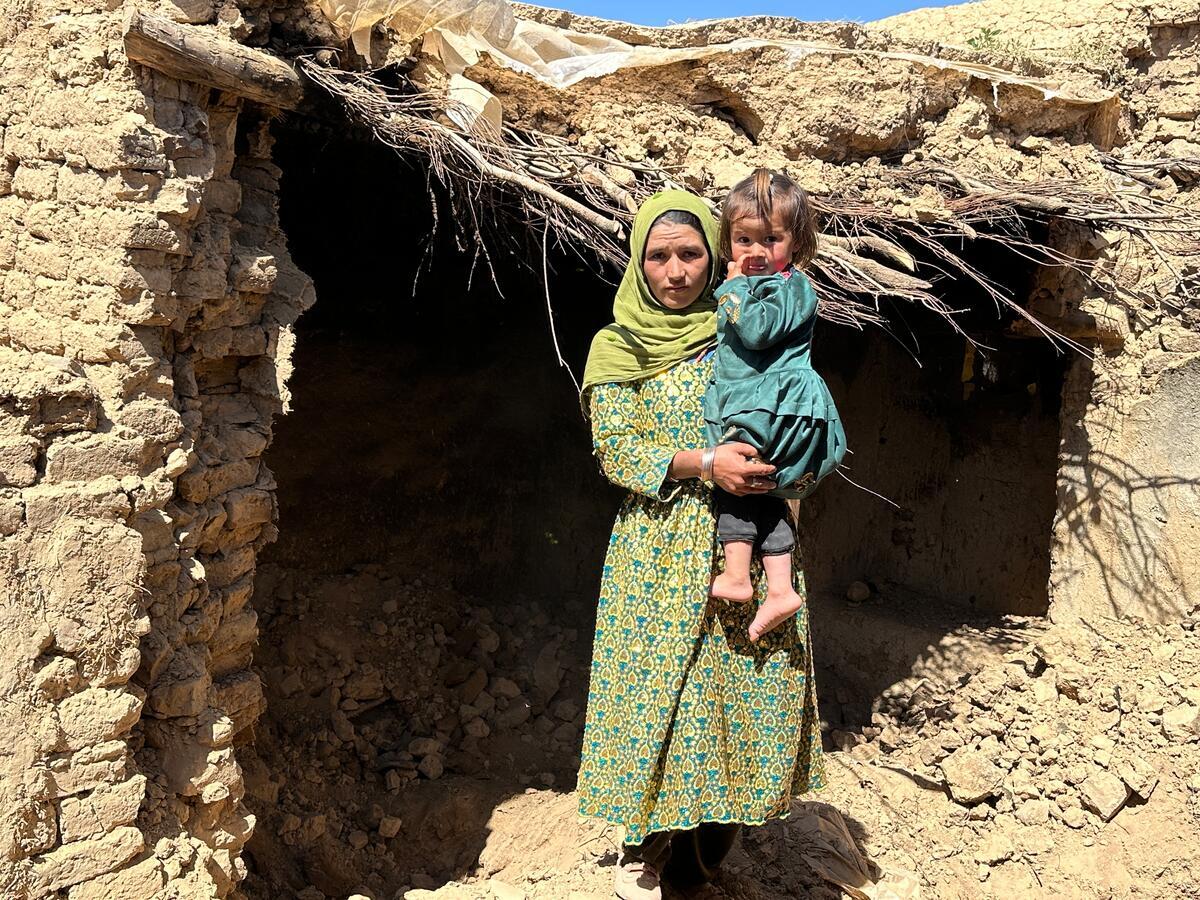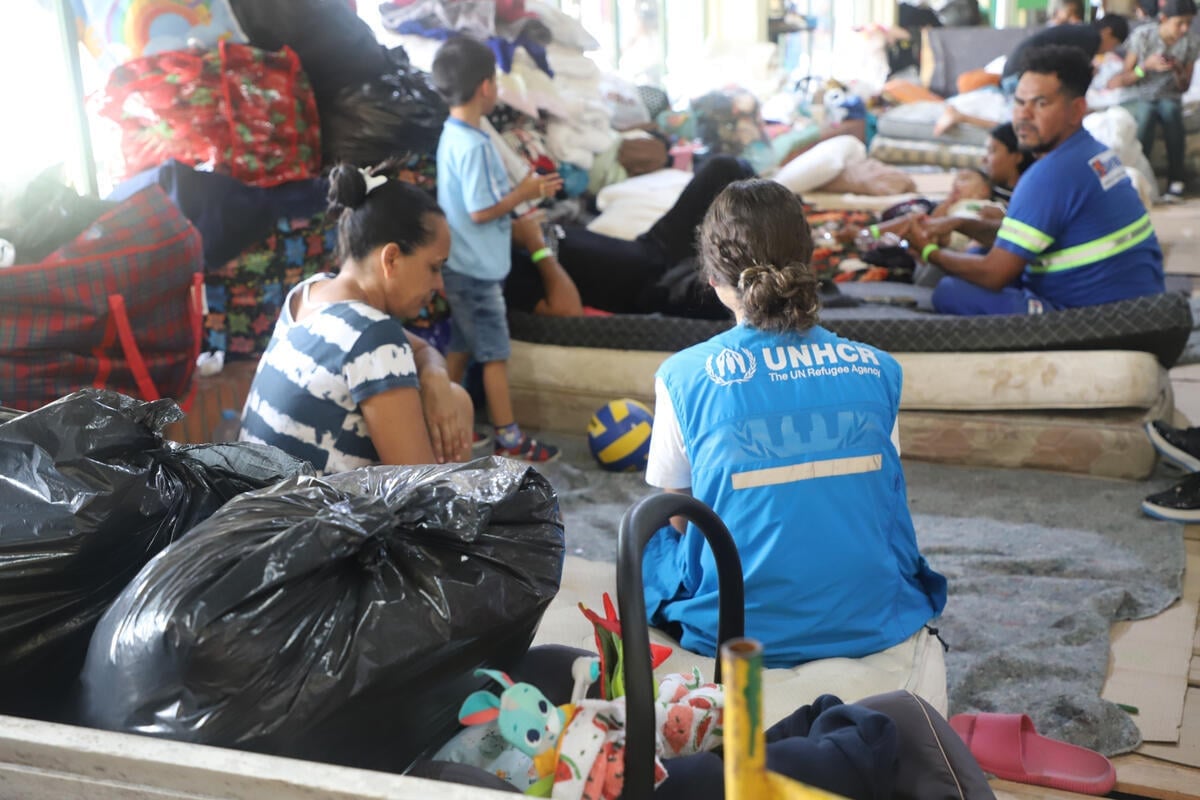Dramatic rise in Afghan returns under new UNHCR programme
Dramatic rise in Afghan returns under new UNHCR programme
JALALABAD, Afghanistan - More than 3,000 Afghan refugees in Pakistan crossed the border into Afghanistan today on the second day of a programme by the United Nations High Commissioner for Refugees to help Afghans return home.
The Afghans returning today under the UN refugee agency initiative arrived in some 200 trucks and cars from as far away as Karachi. Many had stayed during the weekend break at a UNHCR centre at Takhta Baig just outside Peshawar in Pakistan to register for assistance before crossing into this eastern Afghanistan town.
The UN refugee agency provides each voluntary returnee with $20 or $100 for a family of five to finance their travel home on arrival at the Afghan border town of Mohmandar, where UNHCR has set up a cash distribution point. Each family later receives 150 kilogrammes of wheat from the UN's World Food Programme, blankets, plastic tarpaulin, a hygienic kit, tools and other items in distribution centres UNHCR has set up throughout Afghanistan.
At the kick-off of the programme on Friday, only 196 Afghans returned, but the number dramatically increased today following wide publicity about the opening of the Takhta Baig centre. The facility is the first of seven UNHCR plans to establish in Pakistan to register returnees four days a week - Monday through Thursday. Each of the seven centres will be able to process up to 5,000 persons a day once they are fully operational.
A similar programme is due to start shortly in Iran. Pakistan and Iran host an estimated 3.5 million Afghan refugees. UNHCR expects 1.2 million refugees and displaced people to return home this year.
Since the installation of the interim government in Kabul in December, more than 150,000 Afghans have returned on their own to Afghanistan despite decades of civil war, drought in the last several years, and insecurity in some provinces.
Most returnees said they came back to Afghanistan after hearing reports that the security situation has improved in their country. The vast majority of the Afghans participating in the UN refugee agency programme today were bound for Kabul, or planned to stay in Jalalabad.
Evidence of an increasingly improving situation can be seen in Jalalabad, where UNHCR's partners have begun implementing livelihood projects disrupted in the aftermath of the U.S.-led war against terrorism in Afghanistan. A concrete beam-making plant to support UNHCR's shelter programme for the poorest of the poor among the returnees began operating last month. Outside Jalalabad, villagers two weeks ago resumed the construction of a mini-hydroelectric project in a community of 200 people. Along the Torkham-Jalalabad road, teams are clearing fields of land mines.
Because of a still precarious security situation in some parts of Afghanistan, people participating in the UNHCR-facilitated repatriation initiative are cautioned to avoid certain areas, including Paktia, Khost, Paktika, Zabul, Uruzgan (south), Nimroz, Helmand, Farah, Tora Bora and Sholgara. In the past two months, more than 50,000 Afghans have arrived in Pakistan, including nomads and other people in need of assistance. UNHCR is relocating the newly arrived Afghans, as well as those who have been living in urban centres and are in destitute conditions, to recently established camps in Pakistan's border region.
The UN last Thursday released its largest humanitarian aid appeal ever, with agencies requesting $1.18 billion for relief programmes this year. Of that sum, UNHCR needs $271 million to help up to 1.2 million Afghans return home and finance rehabilitation projects throughout the country, as well as assist the millions of refugees still under its care.


